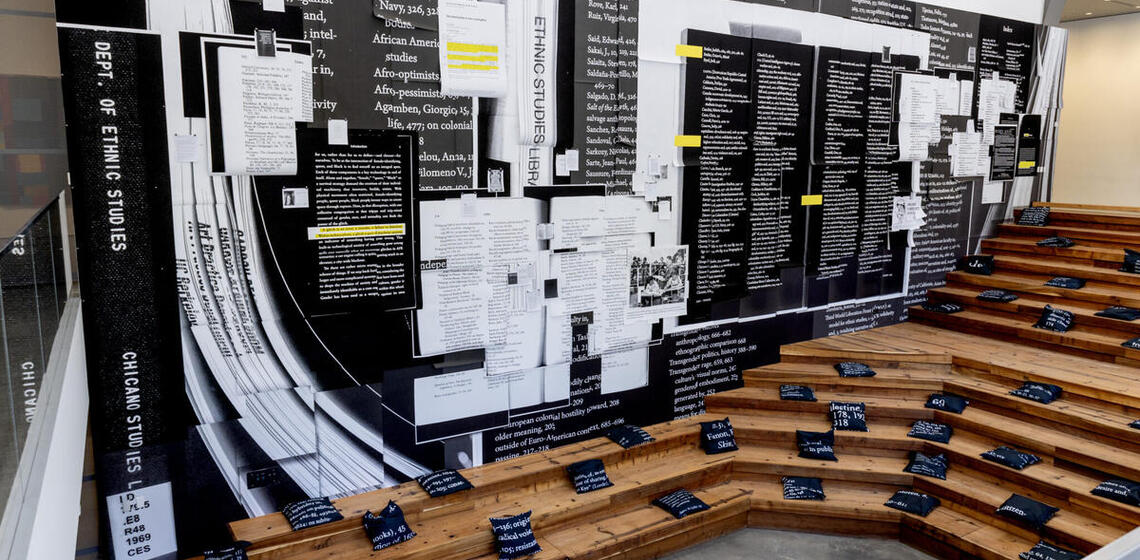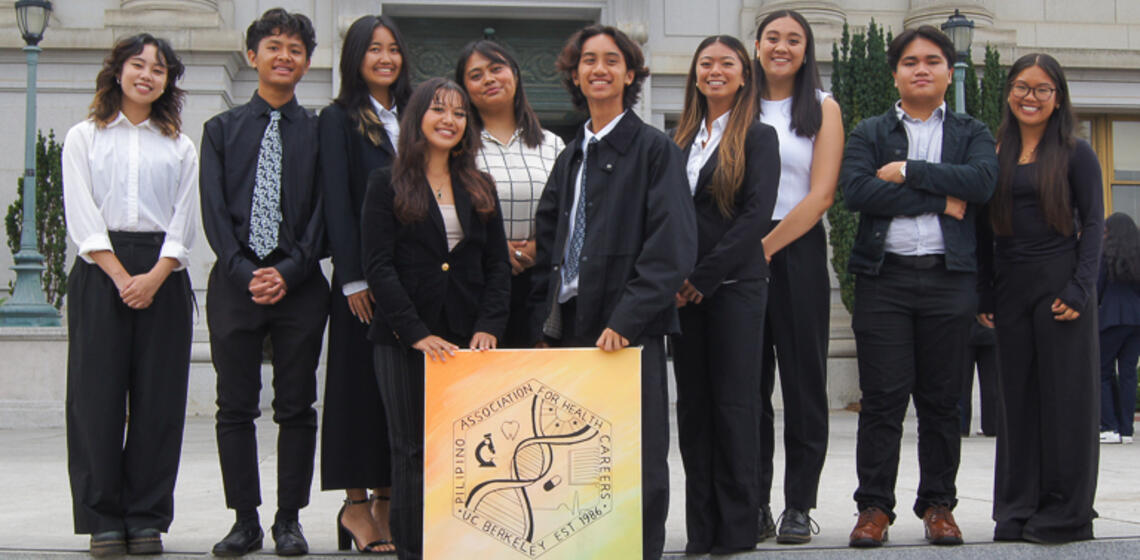This month, we honor the rich history, culture, and contributions of Filipinx Americans to the United States.
Filipino American History Month (FAHM)*, established in October 1988, commemorates the first recorded presence of Filipinxs in the continental U.S. On October 18, 1587, "Luzones Indios" came ashore from the Spanish galleon Nuestra Señora de Esperanza, landing at what is now Morro Bay, California. As the third-largest AAPI group in the U.S. and the second-largest in California, Filipinx Americans have shaped and enriched this nation over generations.
At UC Berkeley, we celebrate the vibrant and diverse Filipinx community. This year’s theme, set by the Filipino American National Historical Society (FANHS), is From Quotas to Communities: Filipino American Migration and Movement.
*We refer to the month as Filipino American History Month to align Congress' resolution that officially recognized October as "Filipino" American History Month and use "Filipinx" when addressing individuals and the community. We acknowledge the use of multiple “umbrella” terms, such as Filipino/Filipinx/Pilipinx and the many intersectional identifying terms people embrace. We respect and appreciate how community members choose to self-identify.
Spotlight: AA & PI Thriving
At UC Berkeley, AA & PI Thriving works to build a more inclusive future by centering student voices, strengthening support systems, and celebrating cultural presence on campus. We invite you to learn more about our initiatives, connect with AA & PI communities, and take part in shaping a thriving Berkeley for generations to come.
Student Groups
- CalLink groups
- Pilipinx American Alliance
- Pilipinx Academic Student Services
- MAHIWAGA A Cappella
- League of Filipino Students at UC Berkeley
- Maganda Magazine
- Pilipino Association for Health Careers
- Pilipinx Association for Scientists Architects & Engineers
- Pilipinx Basketball Association
- Partnership for Pre-Professional Pilipinxs
- Pilipinx American Graduate Student Association
- Pilipino American Law Society
- Pilipinx American Alumni Chapter (PAAC)
- Berkeley Club of the Philippines
- DeCal: Philippine Folk Dances
- DeCal: Pilipinx Resistance and Organizing
- ASUC Office of Senator Shawn Canin (Pilipinx Community Office)
Units and Departments
- Asian American and Asian Diaspora Studies Program
- Asian Pacific American Student Development (APASD)
- Asian American & Pacific Islander Thriving Initiatives
- Department of South and Southeast Asian Studies
- Filipino Language Instructors in the South & Southeast Asian Studies

APASD Satellite Advising Services
The Asian Pacific American Student Development (APASD) office resumed its Letters & Sciences virtual advising services and expanded their schedule to every day of the week:
-
Mondays 1-4pm (with Madalyn Morris Huerta)
-
Tuesdays 9am-12pm (with Mei-Chen Pan)
-
Tuesdays 1-4pm (with Arman Liwanag-Orpilla)
-
Wednesdays 1-4pm (with Riri Shibata)
-
Thursdays 1-4pm (with Kelsey Owyang)
-
Fridays 9am-12pm (with Humah Bargzie)
If you meet with L&S students who wish to deepen their connection to UC Berkeley's Asian American, Pacific Islander, South Asian, Southwest Asian, and North African (AA/PI/SSWANA) communities, please refer them to the calendar to book an appointment
Staff and Faculty Resources
- It is important that we acknowledge the intersectional identities that exist within communities. While it is an issue that impacts many communities, we would like to take this time to invite staff and faculty to join an upcoming UndocuAlly Training to learn about how to support undocumented students, especially in the current times. Visit the UndocuAlly page for more details and to sign up.



















